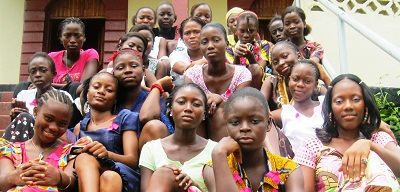 In my home country of Liberia, the social and cultural impact on adolescent girls’ sexual and reproductive health is devastating. Girls face many issues when it comes to their sexual reproductive health and rights, including social isolation, lack of education, traditional practices, economic disparities, violence and issues of confidentiality and stigmatization.
In my home country of Liberia, the social and cultural impact on adolescent girls’ sexual and reproductive health is devastating. Girls face many issues when it comes to their sexual reproductive health and rights, including social isolation, lack of education, traditional practices, economic disparities, violence and issues of confidentiality and stigmatization.
Over the years, several laws and policies have been enacted to address these issues (Rape Law, Inheritance Law, Sexual Reproductive Health Policy, Girls Education Policy, and Gender Policy). Although these laws are much needed to protect our adolescent girls, they will not be effective if girls do not have the power to take charge of their sexual and reproductive health and rights. For example, many girls have access to information on how to prevent HIV and STIs and pregnancy. Many girls know that they have the right to ‘say no’ and that they have the right to make their own decisions regarding their sexual reproductive health. They know this information; however, many girls are in situations where they don’t have the option to make these choices.
When I think of the struggles of girls in Liberia, I think of girls like Kinneh. She told me, “Most of us lack the support what we should have from our parents, so we are forced to look for our basic needs from older men. We end up in relationships that we do not want and became sexually active when we are very young. Even in the schools, we face rape and sexual exploitation for grades from our teachers. We find it very difficult to talk in public. Sometimes we feel that we have nothing good to offer.”
Clearly, there is a disconnect between the systems and services we have instituted and the level of accessibility and accountability for Liberian girls. In short, although there are now laws which protect our girls, they are meaningless if girls are not empowered. In order to change this, we must ask ourselves:
- How do we view our sexuality?
- How are we addressing power asymmetries, inequity and poverty?
- Where are the active voices of our politicians and religious leaders?
It is in the answers to these questions that we will find the Missing Link.
My mission: identify strategies and partners to address the Missing Link so that adolescent girls in Liberia can live healthier, more fulfilled lives. Girls around the world are counting on us.
Visit Hope4Liberia.org to learn more about Aisha’s work to empower adolescent girls in Liberia.

